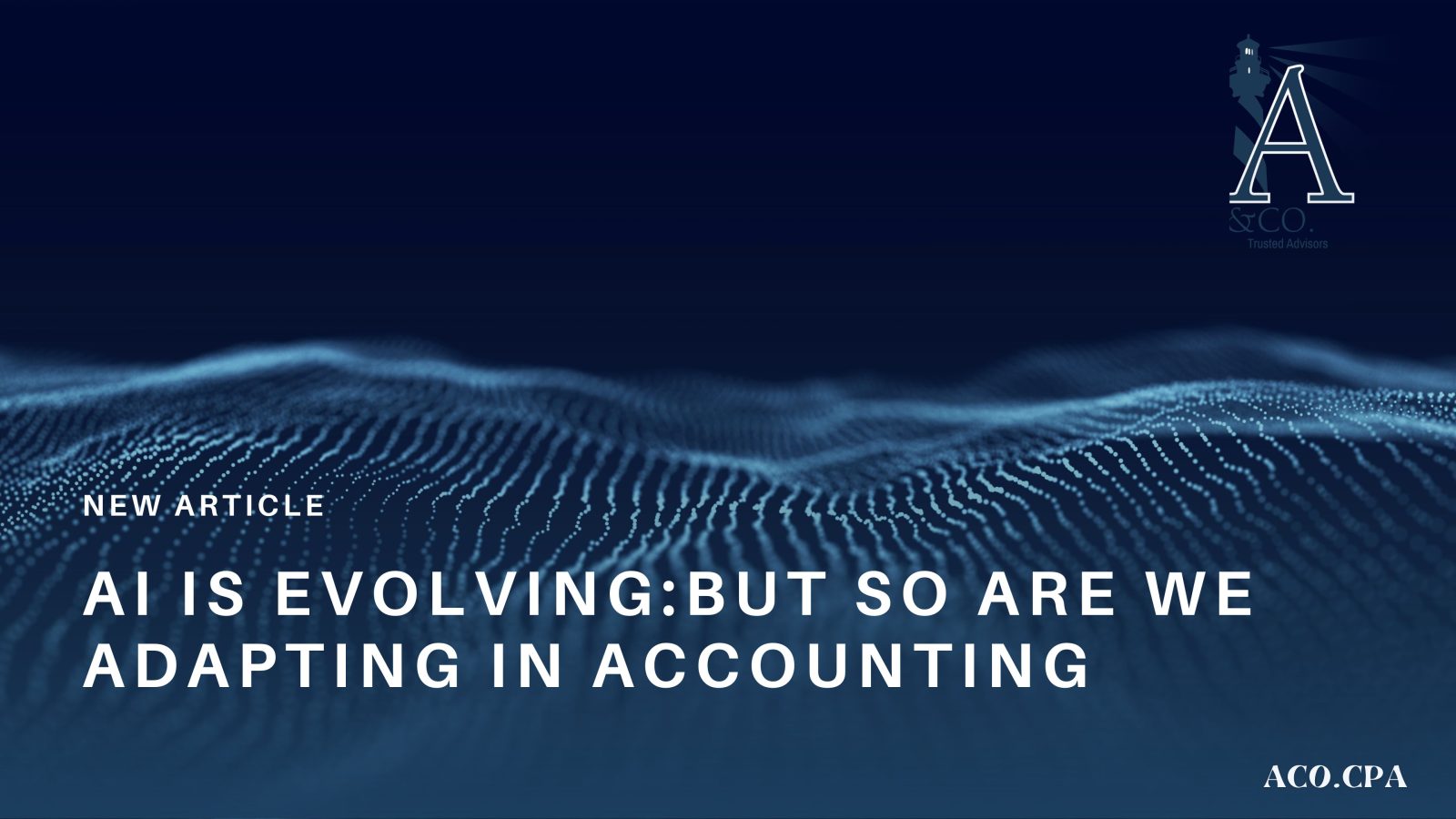AI Is Here—But So Are We: Evolving Accountancy to Better Serve Clients
The accounting profession is undergoing a dramatic transformation. Artificial intelligence (AI) is now capable of automating a wide range of tasks that once required hours of human input—data entry, invoice matching, bank reconciliations, and even basic reporting. These changes are prompting many to ask: Where do accountants fit in a world increasingly run by machines?
The answer is clear: we’re not just still here—we’re more valuable than ever.
While AI is improving the efficiency and accuracy of accounting processes, it can’t replicate the nuanced thinking, ethical judgment, or client relationships that are at the heart of what we do. Our role as accountants is evolving—not disappearing. In fact, the rise of AI is enabling us to focus more on the high-value, strategic work that clients truly care about.
From Number-Crunchers to Strategic Advisors
Historically, much of our time was spent on manual, transactional tasks. But today, with smart software handling the heavy lifting, we can devote more energy to interpreting data, identifying trends, and offering forward-looking guidance. AI may be able to generate financial reports in seconds, but it can’t sit down with a client to explain what those numbers mean for their business, or what decisions they should make next.
This shift allows us to become true strategic partners to our clients. Whether it’s advising on cash flow, tax planning, business restructuring, or risk management, our expertise goes far beyond the numbers. We translate complex financial data into actionable insights—helping clients make smarter, more confident decisions.
Technology as a Tool, Not a Threat
At our firm, we view AI not as a threat to our profession, but as a powerful tool that enhances our ability to serve. We’re embracing automation to streamline workflows, improve accuracy, and deliver faster results. But we’re just as committed to staying human—maintaining the trust, responsiveness, and personal connection our clients rely on.
For example, automated systems can flag anomalies in financial data—but it still takes professional judgment to determine what’s meaningful, what’s noise, and how to respond. Clients don’t just want numbers—they want context. They want clarity. And most of all, they want a trusted advisor who understands the bigger picture of their business.
Earning—and Re-Earning—Client Trust
In a world where AI handles the mechanics, human relationships become the differentiator. That means earning client trust isn’t a one-time event—it’s something we must continually reinforce through transparency, clear communication, and consistent value.
We’re also helping clients navigate their own digital transitions. Many businesses are adopting new tools but aren’t always sure how to integrate them or interpret the data they produce. That’s where we step in—not just as accountants, but as guides through an increasingly complex financial landscape.
Investing in the Future
To serve our clients effectively, we’re also investing in our own growth. That means upskilling in areas like data analytics, cloud accounting platforms, and cybersecurity. It also means cultivating soft skills—like communication, empathy, and creative problem-solving—that AI can’t replicate.
This investment ensures we’re not just keeping pace with change, but staying ahead of it—so our clients can, too.
The Bottom Line
AI is transforming how accounting work gets done—but not why it gets done, or who it gets done for. Clients still need real, thoughtful advice. They still need professionals who understand their goals, their challenges, and their industry. They still need accountants who can combine data, experience, and intuition to help them make sound decisions.
So while AI might be handling the numbers, it’s people—trusted, forward-thinking accountants—who are still delivering the insight, strategy, and peace of mind clients truly value.
And that’s not changing anytime soon.
As always, if you have any questions contact your Accavallo and Company team member.



